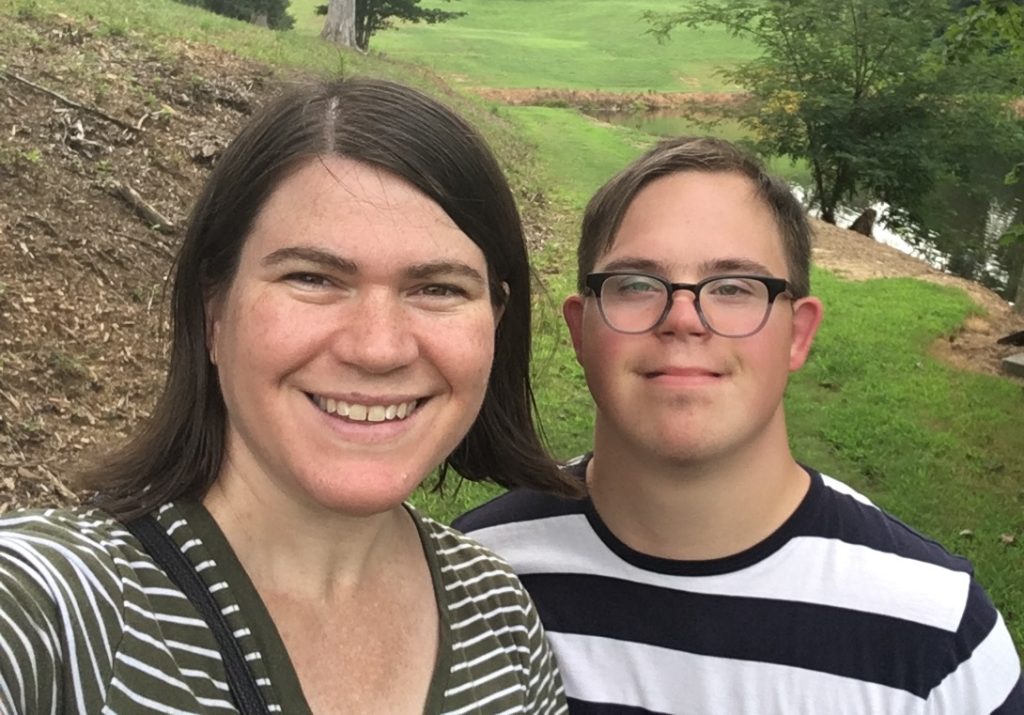Part 3: Stitching the Values of Our Future
Follow this upcoming series of blog posts to track the rise of the pronatalism movement in Silicon Valley, the threads of eugenics woven into the fabric of that movement, and the snags of humanity that may yet unravel a carefully stitched path toward a dystopian future.
As a disability rights advocate, a genetic ethicist, and, frankly, as a mom, I have some additional concerns. First, the original theory of eugenics viewed “feeble-minded people” as inherently bad. Now, “feeble-minded” was a loosey-goosey term that included any “mental deficiency” eugenicists viewed as negative, but it almost always included people with mental health concerns and intellectual and developmental disabilities. And in fact, Malcolm and Simone Collins, the self-appointed hipster leaders of the pronatalism movement, have said they use in vitro fertilization to select embryos with higher IQs (an endeavor that lacks scientific backing). Many in society just accept that promoting the birth of highly intelligent babies (and avoiding the disabled ones) is beneficial, but is it really?
One of the easier arguments to point to is that people with intellectual, developmental, and psychological disabilities have contributed significantly to some of humanity’s greatest achievements in art and science: Vincent Van Gogh, Sylvia Plath, Virginia Woolf, Temple Grandin, Shōko Kanazawa (famous Japanese calligraphy artist with Down syndrome), and more. But what of the people who can’t justify their existence through some great achievement? Then we have to examine what we really want as a society. Do we want to value our children because they exist as the cogs in a machine lurching toward a utilitarian future or because they exist as humans?
Defining people as “feeble-minded” and therefore undesirable is deeply rooted in ableism and an industrial-age view of humans as only being valuable if they are “producers.” But what if someone’s contribution to the world is exactly the humanity they bring into it?

My son with Down syndrome faces challenges with reading and budgeting and is no perfect angel (he even flips me off sometimes), but he is compassionate, kind, and works hard and volunteers his time to coach high school sports and work in a food pantry, and he’s a talented photographer. The world is better for our family and community because he is in it. In my worldview, every single person, regardless of ability, has their own gifts, relationships, strengths, and talents to contribute to the world—as well as challenges to work through.
Like its eugenics predecessor, the “right” kinds of people defined by the pronatalism movement are largely determined by wealthy, white men who have no idea what it’s like to shop for groceries, much less rear children. Billionaire Russian Pavel Durov is spreading his sperm with no involvement at all in the nurture of the children, and Musk has markedly contentious relationships with his older children and their array of mothers. These people are relying predominantly on genetics to produce successful offspring and largely casting aside the role of nurturing necessary to producing healthy, well-adjusted children. And even Malcom and Simone Collins, who are raising their own children, have drawn sharp criticism for their “tiger paw” parenting which involves striking young children in the face as a form of correction and hanging iPads from their necks to entertain them. Parenting that produces strong emotional connections involves love, sacrifice, teaching, and compassion.
If you want the recipe for the worst types of people who’ve done the most harm to the greatest number of humans—produce highly intelligent people with no compassion or kindness and no sense of justice or fairness. So let’s recognize this pronatalism movement for what it is: a reformulation of an old idea, eugenics. Moreover, the inevitable conclusion is not the glorious utopia sold by its proponents where all the successful people are producing the best humans and technology, but rather a dystopia contrary to most liberal AND faith-based values that promote justice, fairness, compassion, and nurturing.
Note: There are many who contend that a movement can only be defined as eugenics if it’s sponsored by the state, but this distinction seems to split hairs given that Francis Galton himself—the father of eugenics who coined the term—defined eugenics as: “the science which deals with all influences that improve the inborn qualities of a race; also with those that develop them to the utmost advantage.”
So far, the pronatalists meet the definition of eugenics by espousing the value of selective breeding and developing technology to manifest that vision, but will they proceed to the next inevitable phase of eugenics: snipping away “the unfit?”
Written by Stephanie Meredith, MA, DrPH

